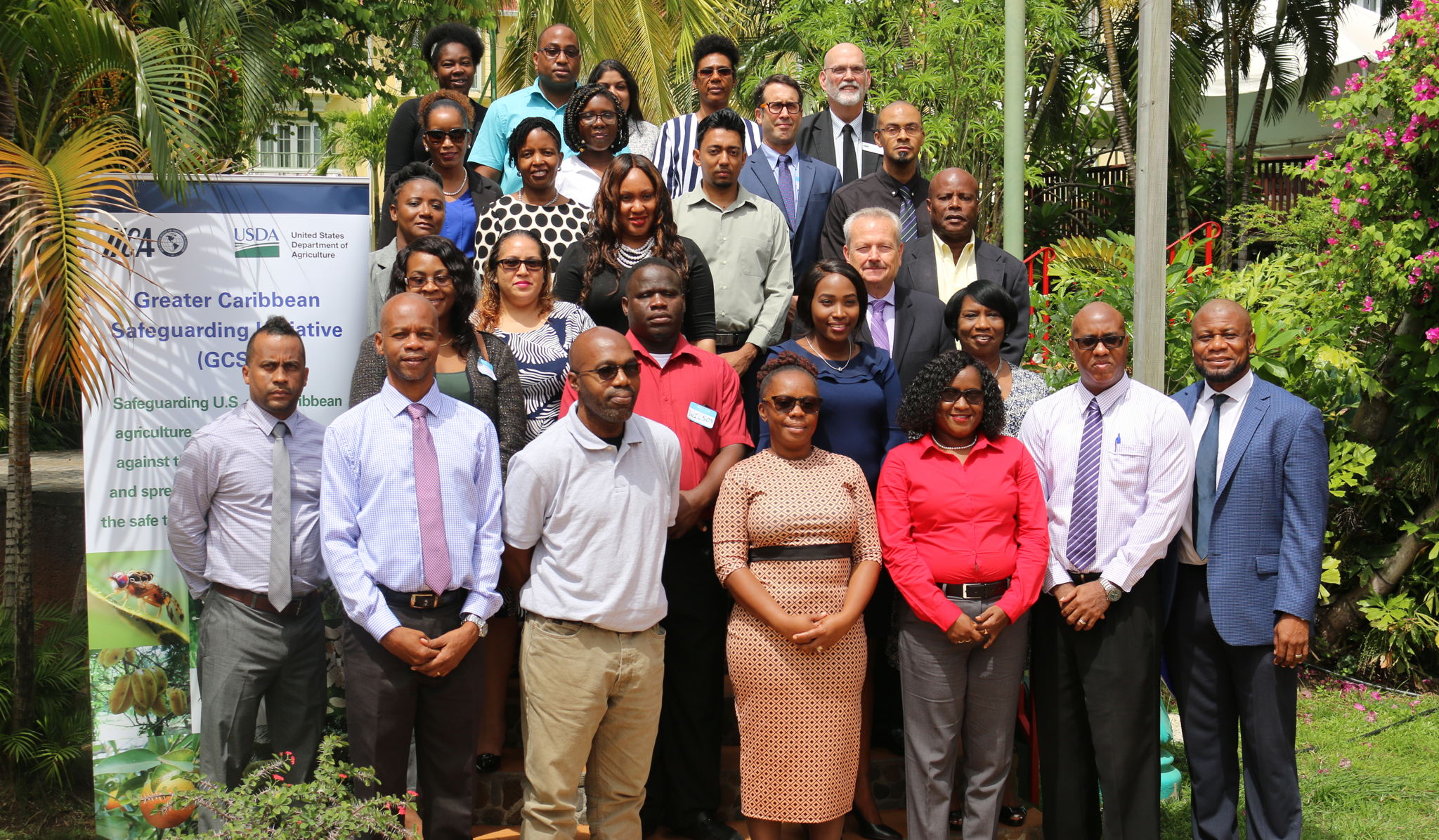Regional Electronic Phytosanitary (ePhyto) Training for the OECS
OECS Media Statement
Improved efficiency in the trade of plants and plant products is expected in the OECS following a two-day training seminar on the use of electronically exchanged Phytosanitary (ePhyto) certificates.
The workshop, currently being held at the Coco Palm Hotel in Saint Lucia from June 26 – 27th 2019, is being conducted by the Greater Caribbean Safeguarding Initiative (GCSI), the export services of the United States Department of Agriculture (USDA) and the Animal and Plant Health Inspection Services (APHIS) in collaboration with the International Institute for Cooperation in Agriculture (IICA), the Organisation of Eastern Caribbean States (OECS), the Caribbean Agriculture Health and Food Safety Agency (CAHFSA), the Caribbean Plant Health Directors and the Ministry of Agriculture, Fisheries, Natural Resources, Physical Planning and Cooperatives.
This development of the ePhyto system is consistent with the World Trade Organisation’s (WTO) new Trade Facilitation Agreement and will promote the modernisation of phytosanitary systems for improved market access and trade.
In comparison to the current paper exchange of phytosanitary certificates between the national plant protection organisations, the ePhyto system provides several benefits including:
- A globally harmonised approach for electronic phytosanitary certification;
- Reduced potential for fraudulent certificates;
- Reduced data entry and validation activities by National Plant Protection Organisations (NPPOs);
- Improved security in the transmission of certificates;
- Improved efficiency in arrival and clearance of plants and plant products at the point of entry;
- Reduced delays in receiving replacement phytosanitary certificates when required;
- Reduced development costs;
- Avoids bilateral agreements required for direct NPPO to NPPO transfer of electronic certificates;
- The potential to link with the World Customs Organisation's “Single Window” initiative and to harmonise codes and processes; and
- Use of harmonised international e-business standards between governments and the United Nations Centre for Trade Facilitation and Electronic Business (UN/CEFACT).
The specific objectives of the workshop are to:
- build the capacity of Plant Health Officials, Customs Officers and Trade Professionals involved in the trade of plants and plant products through the introduction of an ePhyto system;
- introduce the concept of the ePhyto system and the processes involved in its development; and
- allow access to presentations and interactive demonstrations of the ePhyto system.
Upon completion of the training, OECS public sector professionals will have improved knowledge of the ePhyto system and will contribute towards the harmonisation of plant health systems and improved efficiencies in the trade of plants and plant products - assisted by the USDA/APHIS plant protection and quarantine department.
The system, once established, will enable countries to facilitate trade by transmitting phytosanitary certificates in a modern, cost effective and globally harmonised manner ensuring enhanced authenticity and integrity of information contained in the certificate.
The OECS Commission welcomes the positive response from the USDA/APHIS plant protection and quarantine department to the request for strengthening export certification in the Economic Union.





